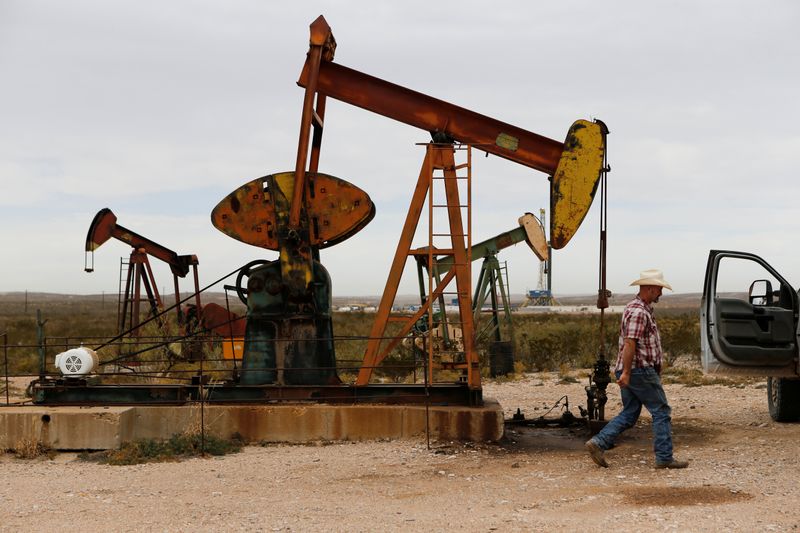By Sonali Paul and Roslan Khasawneh
MELBOURNE/SINGAPORE (Reuters) - Oil futures were little changed on Tuesday after sharp overnight losses, as the latest tropical storm in the Gulf of Mexico lost strength, but worries about fuel demand persisted with flare-ups around the globe in coronavirus cases.
Brent crude futures (LCOc1) edged 3 cents, or 0.1%, lower to $41.41 a barrel at 0637 GMT, reversing earlier small gains.
U.S. West Texas Intermediate (WTI) crude futures (CLc1) for October, due to expire on Tuesday, slipped 4 cents, or 0.1%, to $39.27 a barrel. The more active November contract
Crude prices, which fell about 4% on Monday, won some respite as Texas refineries stayed after a tropical storm was expected to keep losing strength, allaying worries about U.S. refinery demand for feedstock.
However, concerns about global demand held sway.
"The recovery in sentiment after the rout in risk assets seen a fortnight ago was clearly fragile," said Vandana Hari, energy analyst at Singapore-based Vanda (NASDAQ:VNDA) Insights.
"This week, the market is recalibrating to a likely stalling of the economic recovery in Europe as several countries in the region impose fresh restrictions to contain a surge in the coronavirus."
Monday's price slump was spurred by concerns that an increase in coronavirus cases in major markets could lead to fresh lockdowns and hurt demand.
That raised the possibility that a return of Libyan oil could come when it isn't needed, as the country looks to ramp up exports.
"We had a pretty punchy risk-off session (overnight) ... on fears around the risk that a COVID resurgence starts to have negative impacts on demand again," said Lachlan Shaw, National Australia Bank (OTC:NABZY)'s head of commodity research.
Markets are nervous about demand in places like the United Kingdom, where fresh restrictions are being imposed. U.S. health officials are also warning of a new wave in the coming winter.
"When the virus resurges, governments lock down, impose restrictions, and individuals and businesses start to retreat. It's all bad for demand," Shaw said.
Traders will be watching out for the American Petroleum Institute's data on U.S. oil inventories due later on Tuesday.
U.S. crude oil and gasoline stockpiles likely fell last week, while inventories of distillates, including diesel, were seen climbing, a preliminary Reuters poll showed.
